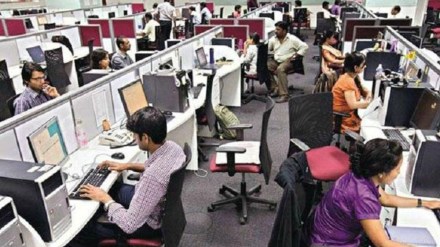By Sarbojit Mallick
Economic uncertainty has been on the rise for so long, and the wave of turbulence that it creates for both the organization and its employees shows no markers of slowing down in the near future. From ensuring employees have the necessary skills to navigate an increasingly digitized workplace to dealing with the aftermath of the global pandemic, HR professionals are admittedly working to create stability in the workplace.
Today, HR leaders are working around the clock, navigating through a workplace ecosystem characterized by layoffs, furloughs, and reductions, and taking strategic measures to ensure their employees feel safe keeping the organization floating. For business sustainability, they are actively involved in creating business continuity plans, drafting effective communication procedures, and eliminating possible challenges from various departments.
However, the problem lies with the way these challenges are being addressed by utilizing the same approach- defining the problem, addressing the complicated variable, and deciding on the best way to move forward. But when we consider that today’s greatest challenge is that these problems are complicated and complex, which makes addressing the complicated variable process redundant when dealing with complexity.
To be truly stable in this ‘new normal,’ HR professionals need to adapt and develop a dynamic approach that makes sure organizations stay buoyant during challenging times by focusing on employee retention.
Prioritise employee recognition
Over 80% of employees believe that recognition matters; during unpredictable times, acknowledgment and appreciation go a long way to enhance engagement and boost work spirit. But recognition isn’t just effective for telling employees that they did a fantastic job; it helps foster a deeper connection between the organization and its employees.
Using a performance management system powered by HR technology makes it easier for HRs to recognize high-performing teams. The right performance tools help provide real-time feedback, enabling employees to become more agile and become familiar with the view of the organization’s real-time performance. Thus, it’s an impactful way for the whole enterprise to share and celebrate hard work, and in turn, employees get aligned with the company’s vision and mission.
The culture of trust matters
During market volatility, helping employees feel psychologically safe plays an important role in building a network of stability. Being vulnerable with your employees does not denote weakness but fosters greater connection and reliability. HR professionals who communicate the impact of the situation with honesty promote a work culture embedded in trust and transparency. Engagement surveys can let HRs know how uncertainty impacts their employees and how they can help. Another important solution is anonymous surveys that help employees feel more comfortable in offering honest feedback. Hence, creating a safe and transparent work culture means employees can freely express themselves and contribute to building a productive space.
Work on employee growth and development
Placing employee growth at the centre stage during times of upheaval, helps employees feel valued which leads them to put their best foot forward at work. One of the most important things that HR leaders can do is to keep teams focused on their performance goals, leading to employee growth, which will stimulate advancement opportunities in the long run. Implementing HR tech solutions like Learning Management Systems provides tailored development options to meet the career ambitions of employees, as 76% of employees said that they are likely to leave a job if they don’t see a path towards career development. These innovative solutions are designed to assist HRs in demonstrating growth opportunities for employees, boosting employee retention rates.
With economic turbulence continuing to test the resilience of both the organization and its employees, there’s so much that HR leaders can do to build a robust tool apparatus for laying a path to long-term stability. As an HR, it is important to develop a strategy that demonstrates adaptability, vulnerability, and balance, putting emphasis on consistency and reminding employees of the potential growth opportunities that are just lurking around the corner.
The author is Co-founder & CBO, Instahyre
Disclaimer: Views expressed are personal and do not reflect the official position or policy of Financial Express Online. Reproducing this content without permission is prohibited.
